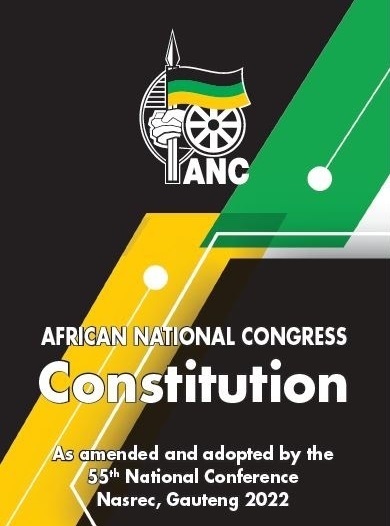It was following the dawn of our democracy that South Africa started to acknowledge and celebrate the role of women in the struggle for freedom through the women’s month. This year, 2017, marks the 61st Anniversary of the 1956 women’s march to the Union Buildings against pass laws. The march was preceded by months of preparation and build up; the women of South Africa including blacks, whites, coloureds and Indians, joined forces and marched on the Union Buildings which marked the biggest mobilisation of women in South Africa. Around 20 000 women joined this anti-pass march at the point when women decisively began to change the political landscape of the country. It was the culmination of a lot of hard work and dedication by some of the great women of the ANC Women’s League including Lillian Ngoyi, Helen Joseph, Dorothy Nyembe, Sophie du Bruyn, Ray Alexander and Rahima Moosa, to mention a few.
Our understanding is that the march to the Union Buildings in 1956, by 20 000 women, was also about challenging an oppressive system that sought to deepen the inequalities in terms of race and gender which contributed to the current triple challenges of unemployment, inequality and poverty which burden women the most. Therefore when women of South Africa converged at the Union Buildings sixty one (61) years ago, from every corner of South Africa, they created an enduring legacy of our country’s history. It was the dedication and tenacity of these women that paved the way for a new South Africa embedded on the principles of non-sexism and equality
The women’s month pays homage not only to the women of 1956 but stands to acknowledge the women of our country who emerged as primary catalysts for protests against and as agitators of the apartheid regime since the turn of the century. As we celebrate the 61st anniversary of the women’s march of 1956, we need to recognize all stalwarts that confronted colonialism, apartheid, pass laws, land dispossession and others. Our celebrations of the 61st Anniversary of the women’s march must also acknowledge the role women played in the history of South Africa. This cannot be complete until we take the journey from the era of Charlotte Maxeke’s, Lillian Ngoyi, Winnie Mandela etc. through to 1956 and to date.
Subsequent to the unbanning of political organisations, women committed to the emancipation of women and facilitated the representation of women in the leadership positions within the ANC and for women be treated as equals to men. With the dissolution of apartheid it gave women the opportunity to focus on the gender struggle directly.
During the negotiations for democracy, women drew on their experience of the years of struggle and were able to ensure a high proportion of women in parliament, influence the country’s constitution, and advocate the establishment of state machinery to mainstream gender equality. However, in the post-apartheid era of reconstruction and development, both the demobilisation of protest movements and the emphasis on the technical aspects of development stand in the way of gender mainstreaming through the state.
In the advent of democracy and the creation of our constitution and laws, women have made many gains. We have one of the most gender sensitive and liberal constitutions in the world. Women have also been integral in the development of laws that protect the rights of women and children such as the Domestic Violence Act, and laws that pertain to sexual offenses and the protection of children. At the 2007 ANC conference in Polokwane women fought for 50-50 gender parity on all ANC Structures and this time the position of women was adopted by the conference. The conference took a resolution on the establishment of a Women’s ministry.
As we celebrate the women’s month we also have to review and quantify progress in improving the quality of life of our women in general. This should also mark our advance to the second phase of our transition within the context of Radical Transformation of Women’s Socio-Economic Rights, which emphasizes economic liberation as the necessary site of struggle for women. During this phase we have to ensure that all our policies and programmes emphasize the urgency of tackling the triple resilient challenges faced by women.
Women at the 5th ANC National Policy Conference identified gender based violence, land re-distribution, monopoly capital, inclusion of women in positions of power and economic transformation as interconnected hindrances towards total emancipation of our women.
We noted the deliberations and characterisation of Gender Based Violence (GBV) by the National Policy Conference as well as the assessment of progress made by the democratic government since 1994 in its work towards eliminating gender-based violence. However, we have further noted that women continue to face high levels of gender-based violence and discrimination.
Therefore we must find lasting solutions to the scourge and our efforts must resume with a campaign for acts of domestic violence to be registered as crimes in the justice system. Neighbourhood watch structures in all wards and the creation of partnerships with in victim empowerment centres in support of GBV victims, and to reduce the withdrawal of gender-based violence cases in courts must be established. We need to also emphasize the development and implementation of strict legislation and increase human personnel (inspectors) to prevent human trafficking, and initiate pointed community awareness campaigns on the prevention of human trafficking and the elimination of child-prostitution.
The posture in which the debates on land issues adopted was gravely concerning. The land clause in the constitution is the only clause that has a year as a time frame for land claims. Our land was invaded long before the 1913 Land Act. The ANC National Policy Conference has acknowledged that the land issue in South Africa constitutes the core of the struggle for the political, economic and social emancipation of the people of South Africa, and of women, in particular. Therefore we must ensure that the reviewal process of the 1913 Land Act should ensure that women access productive agricultural land that will sustain their livelihoods, and that adequate mentoring programmes are provided to women who were given land by government.
The triple exploitation of women in society has been reduced but not yet eliminated and that poverty, unemployment and inequality affect women the most and have been identified by the ANC as serious impediment to radical transformation. Whilst the mainstream economy still continues to be dominated by men, women continue to play in the informal space. However, there has been marginal improvement in the state of entrepreneurship among women; nevertheless much more needs to be done.
The implementation of radical economic transformation should also advance provision of social services. Free quality social services must include (but not limited to):
- Free and compulsory quality education for children of the poor and working class from early childhood development to undergraduate level. Gender equality, history and entrepreneurship forming part of compulsory curriculum.
- Intensify roll-out of National Health Insurance to achieve the provision of free and quality healthcare.
- Eradicate apartheid spatial planning which settles black people in the outskirts of the major economic areas and provide quality housing and community infrastructure.
- Reliable and affordable basic services such as clean water, sanitation and electricity.
- Reliable, affordable and safe public transport.
The ANC inherited a government characterised with difficulties. Elements of the state that are the foundation of our development have not been given full attention over executive, legislature and the judiciary which were built on shaky ground. These are institutions that bring about structural change. This is an agonizing state of affairs as the democratic government had to learn from experience.
Should we fail to bring about radical change in these institutions based on the history of our country and the atrocities that where inflicted by colonialism to our people we would have failed our people. Our positive posture has given space to monopoly capital. They have invaded the space in civil society that was jealously guarded by the toiling masses of our country. They even have the audacity to dictate who should be elected, who is going to be their darling, who will protect their status quo, who must be a minister and so-on by utilising media as their tool of persuasion.
They have been fighting from all fronts to protect their profits and they are sharing platforms with well-respected comrades who have been better placed to define and characterise the present epoch. No one has come out clearly to ask a question about how we must establish an undiluted people’s government that is ready to change the quality of lives of our people.
Progressive strides have been taken during this period of our democracy, more particularly access to resources. A lot has also happened to perpetuate corruption, dysfunctional and weak families, sharing of our communities with criminals, acceptance of patronage from criminals, violence against women and children. Everything monopoly capital stands for is patriarchal and women need to take active leadership in society and the country at large. The casualties of dubious actions by monopoly capital are single parents who are mostly women and the working class that is not sure of the future of its children.
One of the success stories of our democracy is the inclusion and representation of women in political and decision-making positions. Involving women in governance processes constitutes one of South Africa’s globally acclaimed success stories of our country. We need to acknowledge that South Africa as a country, if not the African National Congress as a political party, has been committed to the capacity building of women by ensuring inclusion of women in legislatures, in executive positions and in the judiciary bodies. South Africa has good legislation that ensures women are included in positions of power whilst other countries continue to exclude women through the ineffective zebra system. As a country we can pride ourselves in having institutions such as the Commission for Gender Equality (CGE) and Human Right Commission (HRC) who safeguard the rights of women together with the Women’s Ministry in the Presidency. The ANC Women’s League continues to lead society in championing the issues of women emancipation.
President General of the ANC, John Langalibalele Dube had confidence in the women leadership and we can attest to that with the fact that his tenure was inclusive of women. Cde Oliver Tambo further advanced the agenda of women emancipation by forming a committee on women emancipation, guided by the ANC on issues of gender equality and the struggle for women’s rights. The ANC has continually taken women issues to centre stage and provided leadership to society with regards to women empowerment. Therefore, it remains the duty of the current leadership to ensure that the agenda of women emancipation does not fall by wayside, particularly for women who still need access to resources.
In the year that we celebrate the centenary of the birth of Cde Oliver Tambo, let us honour his legacy in women emancipation by ensuring that women who have capacity to lead are elected in the upcoming conference of the ANC and beyond.
Happy Women’s Month to all the women of our country.
Cde Bathabile Dlamini is the President of the ANC Women’s League and member of the ANC NEC





